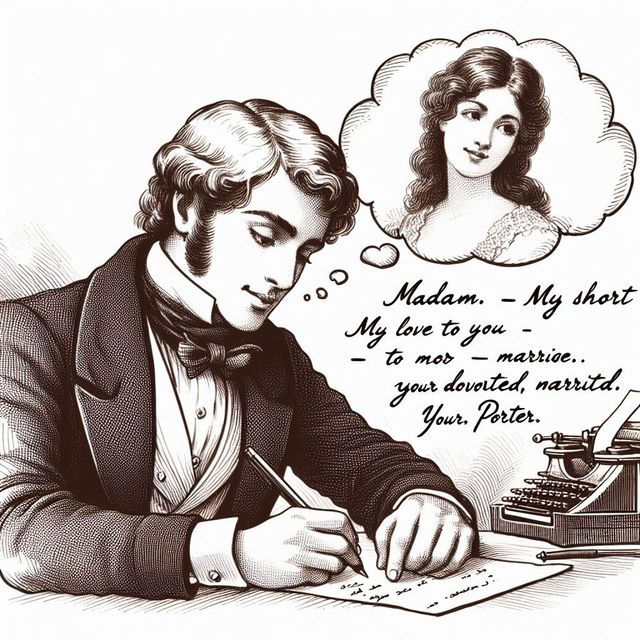-
Vijay Fafat
- Published on
A very light, very badly stereotyped, two-dimensional story about one Porter Piper. He was a born genius, one destined to be a top-class mathematician. So much so that when he was delivered by his mother,
“Omens attended his natal day, and a few weeks before that momentous occasion his mother dreamed she was delivered of a triangle.”
As a child, he was always engaged in drawing figures in the mud or counting ways of arranging stones rather than playing regular games children play. And then one day,
“Porter, while rummaging over his father’s books, which he did , rather to see in how many ways he could combine them on the floor than from any desire to make the acquaintance of their contents , met with an old Euclid . At the first sight of the uncouth figures and hieroglyphical letters that covered its pages, he jumped from the floor and shuffled about in a perfect ecstasy. Never were the fountains of his soul so stirred before. He see-sawed about the room in a grotesque attempt to dance, and tossing his cap in the air, endeavored to give it a playful kick , but failing in the attempt, came sprawling upon the floor, where he lay for some time , exhausted by his saltatory exertions, and grinning hideously. As soon as this playful ebullition had subsided, he turned to the book, which he opened somewhat hastily, and was immediately absorbed in its contents. The food for which his mind had been craving was found at last, and he was happy. The ’ xahor ’ was his. From that moment his occupation was decided. His beloved Euclid occupied him night and day. His companions and the old people endeavored to argue him out of his unreasonable and exclusive devotion to this pursuit; but in vain. They might as well have reasoned with a post. Porter was impervious to argument.”
As he grew, he appeared to embody geometry itself. For in his growth
“His frame was built in the most beautiful mathematical proportion. Nearly every figure in Euclid could have been demonstrated upon the different parts of his body. His belly and shoulders were regularly perfect segments of circles ; his legs formed a superb ellipse, scraping a most intimate and affectionate acquaintance with each at the extremities, but retreating apparently in huge disgust at the knees ; his head was a correct cone, broad at the base, and gradually contracting its limits and becoming beautifully less till it rose to the apex, which was decorated with a tuft vulgarly called cow- lick , which waved gracefully over the hairy hill beneath, like a warrior’s plume. He had a huge mouth, graced with a most portentous set of teeth , forming an acute right angle with a monstrous pair of ears , whose rough and ragged sides it almost touched . He wore a rusty brown hat, stuck upon his head with mathematical precision , and a thread -bare black coat, cut in right angles, each of which was demonstrably correct ; and his nose, overlapping his mouth, seemed to threaten a descent upon a huge greasy stock, buckled tightly about his neck . Such was the outward man of Porter Piper.”
In college, no book on logic or philosophy could defeat him, though all attempts at other subjects like history and poetry were dismal failures, he threw away Milton in disgust after reading perusing it in silence for long, pronouncing it good-for-nothing, “For, Sir, it is all assertion and not a word of proof!” And then,
“Shortly after graduating , he published a work upon the “Parabola of the Concatenary Fluxion”, which immediately attracted the attention of all the mathematical literati, and took a high rank at once. The fame of this work, and the reputation he had before acquired , induced the college to appoint him professor, with a high salary; being glad at any price to secure the services of a man so singularly adapted to his science.”
His one and only letter of wooing written to “a lusty, buxom widow of forty” at the behest of his friends was as a word equation. So anyway, he got married, had kids, and then one day, after becoming “the Napolean of Mathematics”, he fell into a cubical ditch and died. His last words were, “The unknown and known quantities will soon be put into equation.”
